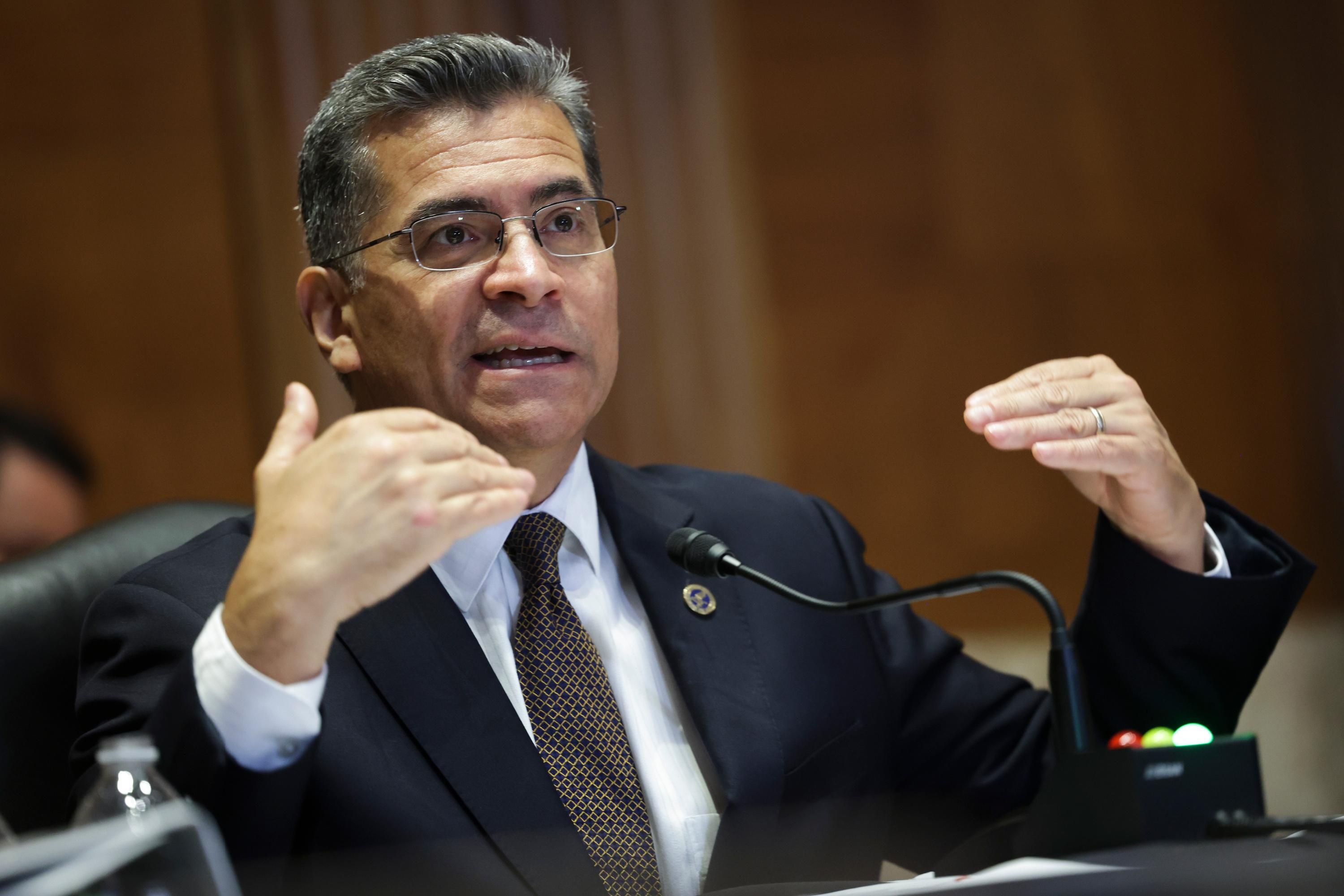
The Biden administration quietly announced last week that it will leave in place one of the largest-ever Medicare premium hikes for the remainder of 2022, despite federal health officials' decision to restrict coverage of the expensive and potentially ineffective Alzheimer's drug that drove the increase.
Progressive healthcare advocates responded with outrage to the administration's Friday announcement, warning that it will inflict entirely avoidable financial pain on vulnerable seniors and hand the GOP an effective talking point heading into the November midterms.
"Keeping Medicare premiums needlessly high until after the election is a gift to Mitch McConnell and his fellow Republicans."
"This is a terrible decision," Linda Benesch, communications director of Social Security Works, told Common Dreams. "Seniors should never have been forced to pay inflated Medicare premiums for an ineffective, dangerous, and massively overpriced drug."
"Not only is lowering Medicare premiums the right thing to do, it's also a political necessity," said Benesch. "Older voters are a key force in midterm elections. Keeping Medicare premiums needlessly high until after the election is a gift to Mitch McConnell and his fellow Republicans. Every Congressional Democrat who wants to keep their seat in November should join us in calling on the Biden administration to reverse this decision and lower Medicare premiums now!"
Warren Gunnels, the staff director for Sen. Bernie Sanders (I-Vt.), similarly argued that the Biden administration's refusal to reverse the premium hike is both political and policy malpractice.
"Imagine being able to put more money in the pockets of senior citizens who are struggling to put food on the table right now and doing nothing instead," Gunnels wrote on Twitter. "This is how you blow a slam dunk."
First announced by the Centers for Medicare and Medicaid Services (CMS) last November, the monthly Medicare Part B premium increase of 14.5% over the 2021 rate—from $148.50 to $170.10—was enacted to account for the potentially massive cost that Biogen's Alzheimer's drug Aduhelm was expected to impose on the federal health program in 2022.
But in January, under pressure from progressive lawmakers and organizations, Health and Human Services Secretary Xavier Becerra instructed CMS to reexamine the 2022 Medicare premium hike in light of Biogen's decision to cut Aduhelm's annual price from $56,000 to $28,200.
And last month, CMS finalized its decision to restrict coverage of Aduhelm to Medicare patients enrolled in clinical trials, further undercutting the justification for the 2022 premium spike.
Citing CMS' Aduhelm coverage decision, Sanders—the chair of the Senate Budget Committee—pushed the Biden administration earlier this year to swiftly reverse the Medicare premium increase and refund seniors who had already paid the inflated price.
Benesch echoed that demand on Tuesday, arguing that "once Medicare rightfully decided not to cover Aduhelm in most circumstances, beneficiaries should have gotten a refund."
"We are going to keep organizing seniors to demand that the Biden administration reverse course and send Medicare beneficiaries the refund they deserve, along with lowering premiums for the rest of the year," said Benesch.
In a five-page analysis released Friday, CMS insisted that carrying out a mid-year change to Medicare's 2022 premiums would be "prohibitively complex and highly risky, requiring significant resources and unproven technical solutions from the varied entities which manage premium collection and payment."
The agency estimated that Medicare Part B's monthly premiums in 2022 would have been $160.30 instead of $170.10 if Aduhelm were removed from the equation.
"Potential Aduhelm costs resulted in roughly half of the 2022 premium increase," CMS said.
Becerra pointed to CMS' conclusion as evidence that the Biden administration's hands are tied by its own November decision to hike premiums in preparation for Aduhelm cost burdens.
Lamenting the "legal and operational hurdles" flagged by CMS, Becerra promised the administration will work to ensure that seniors see premium relief next year—cold comfort to those hurt by higher costs in 2022.
"After receiving CMS' report reevaluating the 2022 Medicare Part B premiums, we have determined that we can put cost-savings directly back into the pockets of people enrolled in Medicare in 2023," said Becerra. "We had hoped to achieve this sooner, but CMS explains that the options to accomplish this would not be feasible."
"CMS and HHS are committed to lowering healthcare costs—so we look forward to seeing this Medicare premium adjustment across the finish line to ensure seniors get their cost savings in 2023," Becerra added.
But Rachel Cohrs of STAT noted that while "overpayments will instead be factored into next year's premiums," it is "possible seniors won't see a decrease in premiums next year, but instead premiums may hold steady or increase at a slower rate than they otherwise would have."
In response to STAT's reporting, Sanders' communications director Mike Casca called it "a classic Democratic Party story."
"Pharma greed and a broken bureaucracy drove up Medicare premiums," Casca added. "[The] White House could take a victory lap and tout lower rates after taking action. Nope!"
This content originally appeared on Common Dreams - Breaking News & Views for the Progressive Community and was authored by Jake Johnson.